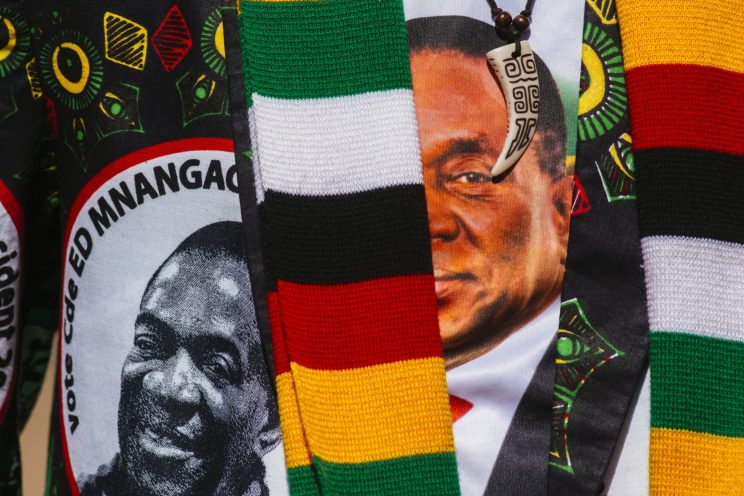Zimbabwe creditors see debt restructuring talks resuming despite disputed vote

Western-based creditors expect to resume talks with Zimbabwe on restructuring its $18 billion of debt, despite doubt over the credibility of last week’s elections, which handed President Emmerson Mnangagwa another five-year term.
Zimbabwe defaulted on its loans in 1999, shutting off its access to credit lines, and its economy has been hobbled by runaway inflation and an almost worthless local currency. Mnangagwa, 80, last year tapped the African Development Bank’s president, Akinwumi Adesina, and former Mozambique leader Joachim Chissano to lead talks on reorganising the liabilities.
The European Investment Bank will participate in the discussions, said Jim Hodges, head of the lender’s regional hub for southern Africa and the Indian Ocean.
“EIB participation in the talks aims to recover outstanding debts, and is not an endorsement of any government,” he said in an emailed response to questions. “Since the government of Zimbabwe is in default, the EIB is currently not pursuing the financial support of any public-sector projects in the country.”
Zimbabwe’s other external creditors include the World Bank, Paris Club, and the AfDB. The AfDB and Zimbabwe’s Treasury had both warned that any debt restructuring agreement would be contingent on the elections being free and fair, but international observers found that the process was deeply flawed and the opposition rejected the outcome as a “sham,” calling for a rerun.
The World Bank, which is owed $1.5 billion by Zimbabwe, said it had been participating in the talks for the past eight months and is providing economic advice. “It is too early to predict the outcome of this engagement,” a spokesperson for the Washington-based lender said by email.
Zimbabwe in 2016 paid off its arrears to the International Monetary Fund, but remains ineligible to borrow from it because of its other outstanding obligations. The government has now formally asked the lender for a staff-monitored program that would help underpin its arrears clearance strategy.
“Technical discussions in preparation for an SMP are expected to commence in due course,” the IMF said in an emailed response to questions. It declined to comment on domestic politics in Zimbabwe or the election.
The AfDB didn’t respond to a request for comment.
Zimbabwe’s Treasury has proposed either a write-off as a highly-indebted poor country, or that its arrears be cleared using a combination of the nation’s own resources and bridge financing from bilateral development partners, or concessional loans.
The government will only be able to re-access “international credit facilities when it repays existing debt, either in full or in part, according to the proposal accepted by the creditors,” Hodges said.

